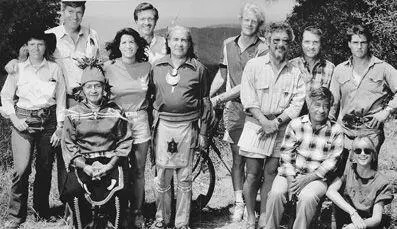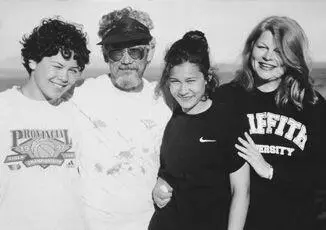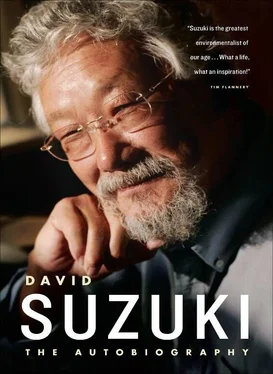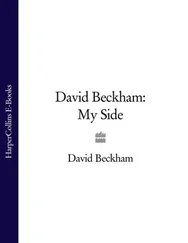The original search for the “greatest” was launched by the BBC, and over a million votes were cast for the top ten Britons, who were: 1. Winston Churchill (28.1 percent), 2. Isambard Kingdom Brunel (24.6), 3. Diana, Princess of Wales (13.9), 4. Charles Darwin (6.9), 5. William Shakespeare (6.8), 6. Isaac Newton (5.2), 7. Queen Elizabeth I (4.4), 8. John Lennon (4.2), 9. Horatio Nelson (3), and 10. Oliver Cromwell (2.8). Two women, but really, is Diana one of the ten greatest Britons? And I had to look up engineer Brunel.
The CBC was extremely discreet in its handling of the list of nominees for its The Greatest Canadian program. For one thing, though working for the corporation, I never had even the tiniest hint that I was on the list. CBC staff must have been contacting people I'd worked with in the past to locate film footage, as well as friends and family for personal photos, yet no one leaked the information to me. When the list was announced, I was floored. How I wished my parents were still alive, because they would have savored it the most. After going through the rejection implicit in the expulsion of Japanese Canadians from British Columbia and the hardships they endured in this country of their birth, Mom and Dad would have been thrilled to see their child held in such high esteem.
ON THE NIGHT OF the final results of the contest, we got a call from our Gitga'at friend Art Sterritt in remote Hartley Bay. “Congratulations on coming in fifth,” he said. “Since everyone ahead of you is dead, that makes you the greatest living Canadian!”
“But Art,” Tara protested, “the program comes on three hours from now, so how do you know?”
“Oh, we have a satellite dish,” he replied. “We watched it from Newfoundland!” Hartley Bay is a tiny village in northern B.C. that can only be reached by plane or boat and is thousands of miles from Newfoundland, but thanks to technology, it is more plugged in than we are in the big city.
Only a few weeks later, Maclean's magazine in Toronto published the results of a poll in which women across Canada were asked with whom they would most like to be stranded on a desert island. They were asked to select from a small list that included me; CBC Television newsreader Peter Mansbridge; Canadian prime minister Paul Martin; Canadian Idol TV series host Ben Mulroney; and Calgary Flames ice-hockey superstar Jarome Iginla. I was flabbergasted when a writer with the magazine called to tell me I had been selected first, by 46 percent of the women (55 percent in Alberta), while the runner-up was young Mulroney at 16 percent!

Vanity Fair portrait of eco-heroes. Left to right : L. Hunter Lovins, Tim Wirth, Leon Shenandoah, Bonnie Reiss, Jack Heinz, Oren Lyons, Ed Begley Jr., me, Dr. Thomas Lovejoy, Cesar Chavez, Tom Cruise, and Olivia Newton-John at an environmental conference held in Malibu, California.
“Where were all those women when I was young and single?” I sputtered. Later, when I did a little strutting and suggested to Tara that I must be hot, she replied matter-of-factly, “David, women aren't stupid. They know you can fish. You were a meal ticket.” Ah, reality.
EIGHTEEN
THOUGHTS AS I GROW OLD
ON MY BRIEF VISITS to Cuba, I have been impressed by the contrast between Fidel Castro and Che Guevara in the public eye. Posters and T-shirts with pictures of Che and slogans from his writings before the Cuban Revolution leader was killed in Bolivia in 1967 are ubiquitous, but I have never seen a sign, statue, or picture of President Castro in the streets. The absence of his image is in keeping with his reputed attitude that nothing is permanent — even the sun will die in a few billion years — so why should people care about their legacy after they're gone?
I have never sought honors or fame, though one honor I received brought pleasure for what it enabled me to do. In 1986, I received the Royal Bank Award, which was presented in an elaborate ceremony in Vancouver before a tuxedo-wearing crowd that included my in-laws and my father and his companion, Fumiko. The award was a tax-free $100,000, and the pleasure it gave was the purchase of our beloved Tangwyn, a small piece of paradise on Quadra Island. When we finally purchased Kingfisher , a small cabin cruiser, in 2003, Tara proclaimed, “David, we've got everything we need in life. We don't need any more stuff.” If I ever receive another award of money, it will go straight to the David Suzuki Foundation's endowment fund.

The family at Tangwyn
Tara and I also believe we have given our children the best any parents could — unstinting love, a variety of experiences at home and in other parts of the world, and a good education. What more support do they need from us to face the future? Now our parental responsibilities are complete; though one may do so, there is no further obligation to pass on money, valuable goods, or property to them.
When Tara and I first met, one of the places we spent time together was her parents' waterfront cottage on Sechelt Inlet on British Columbia's Sunshine Coast. We loved it there. Across the inlet was a muddy beach where we would dig for clams, feel cockles beneath our feet, and set our crab traps. I would cast out from the family float and catch ling cod, and we would take the rowboat offshore and fish for rock cod. We even got lucky and caught the occasional salmon.
But the relentless pressure of people like me meant that over time the ling have disappeared, easy victims of their ferocious appetites and aggressive territoriality. The rock cod on which we depended for breakfast became scarcer and smaller, while more and more cottages sprouted up around us with the inevitable increase in boom boxes, outdoor parties, and water skiers. Across the inlet, an entire hillside was shaved bare of its trees, and then poles and roads appeared, warning of the huge development that followed and the homes that now light up the night. After fifteen years, it was time to find our own place to retreat to from the city.
We began the search with the help of Tara's retired parents, who could check out some of the places that interested us. We spent months scouring properties for sale on the islands between the British Columbia mainland and Vancouver Island in the search for an ideal site that would give us a sense of isolation yet was affordable and reasonably accessible to Vancouver. We had focused on three pieces of land that were available on Quadra and Cortes islands near Campbell River on Vancouver Island. When we walked onto the land Tara later named Tangwyn (Welsh for “place of peace and restoration”), we knew instantly it was what we sought. Its ten acres contained some magnificent old-growth Douglas fir trees, a small creek, and perhaps a third of a mile of water-front that included beaches, rocky promontories, and at low tide a huge tidal pool. A land bridge connected Tangwyn and unoccupied Heriot Island adjacent to us. Tangwyn became our talisman, the place where we wanted our children to feel a strong bond to nature. And it became the place where the girls and our grandchildren would learn how to fish, then clean, cook, and eat their catch.
I love to fish, because fish are a major part of my diet and of who I am. I know sportspeople and conservationists advocate catch-and-release fishing, but I don't. There is no question that when we “play” a fish, the animal is struggling for its life. Usually a fish is worked to exhaustion before being released, so upon liberation, it is an easy target for predators like birds and seals. Fishing for trout in a lake in the Okanagan region of south-central B.C., I noticed loons hovering near the canoe and soon realized they had learned to take a fish right off the hook or to grab it when it was released. Marine seals have learned the same thing.
Читать дальше




![David Jagusson - Devot & Anal [Hardcore BDSM]](/books/485905/david-jagusson-devot-anal-hardcore-bdsm-thumb.webp)









